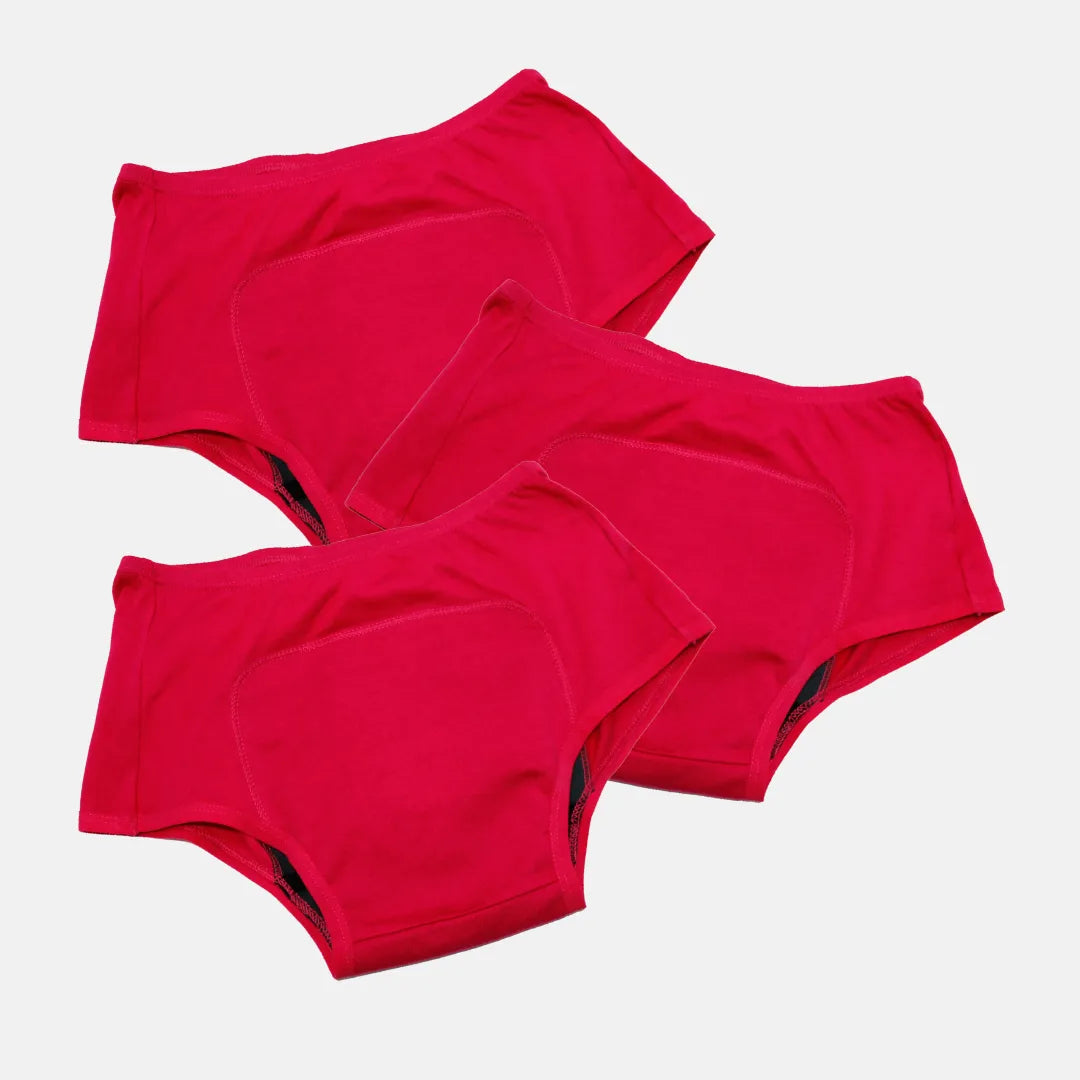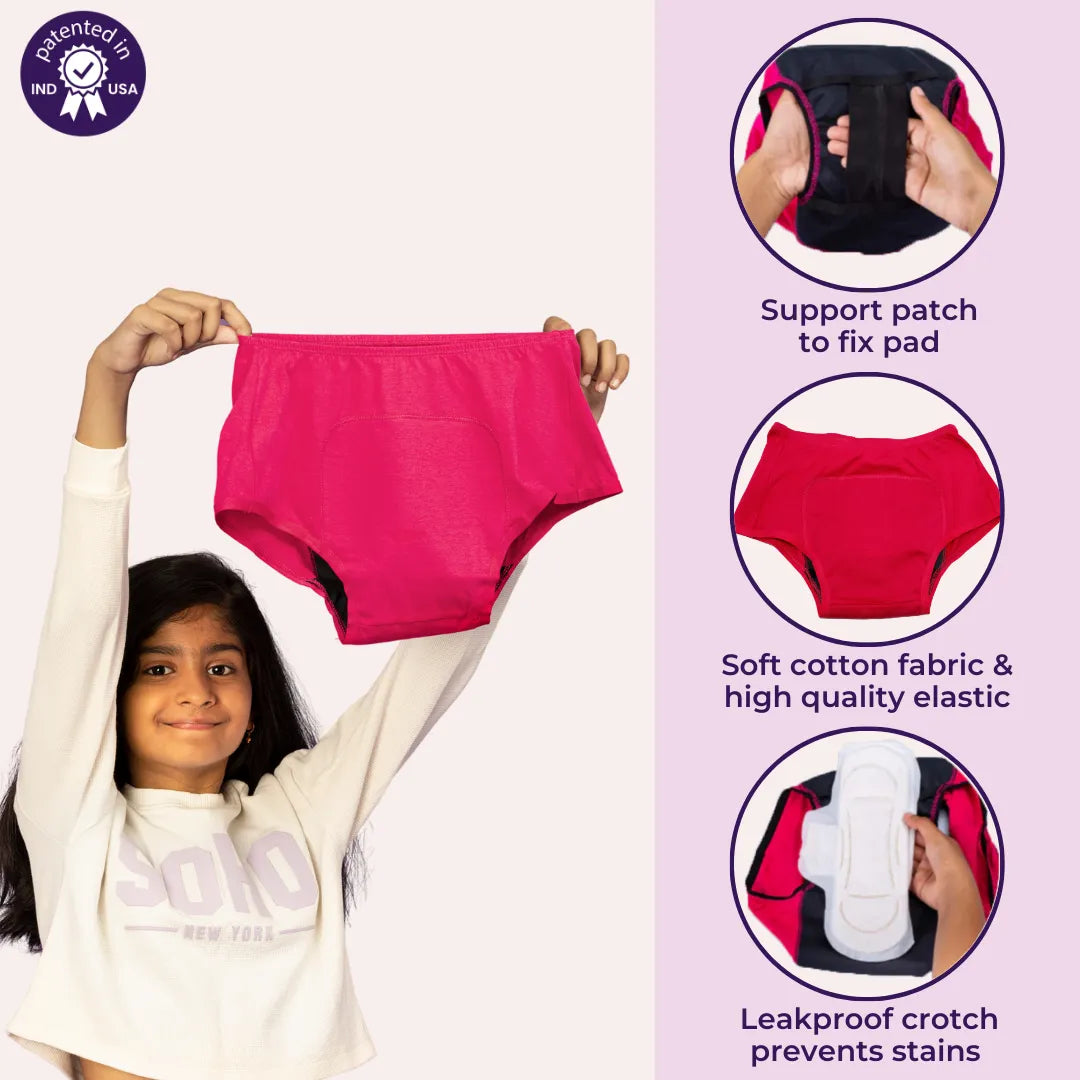As a natural part of the menstrual cycle, women experience a range of physical symptoms, including cramps, bloating and changes in mood.
However, some women may also experience the presence of blood clots during their period, which can cause concern and confusion. While blood clots during menstruation are often normal, they can also be a sign of an underlying health issue that requires medical attention.
Blood clots during periods are common in most women. Clots are blobs of coagulated blood and tissue that look like gel and appear during periods with normal flow. They vary in colour from bright to dark red. While it might be scary to look at, it is natural and you don’t have to worry.
Understanding the causes and characteristics of blood clots during periods can help women make informed decisions about their menstrual health and seek appropriate treatment if necessary.
Causes For Blood Clots During Periods
During periods, the lining of the uterus which is blood & tissue sheds and collects at the bottom of the uterus. It waits for the cervix to contract and expel this. To break down the thickened blood, the body releases anticoagulants. When blood flow exceeds the body’s ability to produce anticoagulants, menstrual clots form.
Clots during periods are most common during heavy blood flow days. Women with heavy bleeding also tend to experience clots a lot more than women who have regular flow. If you are a heavy bleeder, you must read this.
Normal & Abnormal Clots
Clots are normal, but there are both normal and abnormal types. Let’s explore the difference.
Normal clots are about the size of a 25 p coin and occur occasionally during your period. Abnormal clots are larger and occur throughout your period. If you have reasons to believe you suffer from abnormal clots, do visit your gynaecologist.
Underlying Reasons For Abnormal Clots
There are several reasons why a woman may experience blood clots during her menstrual cycle. Some of the common causes of blood clots during periods include:
-
Hormonal Imbalances:
Hormonal changes in the body during the menstrual cycle can cause the uterine lining to shed irregularly, leading to the formation of blood clots.
-
Uterine Fibroids:
In the uterus, noncancerous growths known as uterine fibroids form. They can cause heavy bleeding and the formation of blood clots during periods.
-
Endometriosis:
Endometriosis is a condition where uterine-lining tissue grows outside the uterus, causing pain and heavy bleeding during periods. Blood clots may form as a result.
-
Adenomyosis:
The disorder known as adenomyosis occurs when the lining of the uterus transforms into the muscular wall of the uterus. This can cause heavy bleeding and blood clots during periods.
-
Miscarriage:
In some cases, blood clots during periods may be a sign of a miscarriage or a chemical pregnancy.
-
Use Of Hormonal Birth Control:
Hormonal birth control methods like the pill or IUD can cause changes in the menstrual cycle, including the formation of blood clots.
It's important to note that while blood clots during periods can be normal, they can also be a sign of an underlying health issue. Women who experience heavy bleeding, severe cramps, or large blood clots should consult a healthcare provider for further evaluation and treatment.
Also read: Heavy Bleeding In Young Girls
Complications Of Heavy Bleeding & Abnormal Clots
Heavy bleeding and abnormal blood clots during periods can lead to several complications. Some of the complications include:
-
Anemia:
Heavy bleeding during periods can cause anemia, a condition where the body doesn't have enough red blood cells to carry oxygen to the body's tissues. This may result in weakness, tiredness and other health issues.
-
Pain and Discomfort:
Large blood clots can cause pain and discomfort during periods, making it difficult for women to carry out daily activities.
-
Interference with Daily Life:
Heavy bleeding and abnormal blood clots during periods can interfere with daily life causing women to miss work, school or social activities.
-
Decreased Quality of Life:
Women who experience heavy bleeding and abnormal blood clots during periods may experience a decreased quality of life due to the physical discomfort and emotional stress associated with these symptoms.
-
Infertility:
In some cases, conditions that cause heavy bleeding and abnormal clots—such as endometriosis or fibroids—can also lead to infertility.
It's important for women who experience heavy bleeding and abnormal blood clots during periods to seek medical attention. A healthcare provider can evaluate the underlying cause of these symptoms and provide appropriate treatment to prevent complications and improve overall health and quality of life.
Also read: Natural remedies for PCOS
Treatment For Heavy Periods With Blood Clots
Each case is different and your doctor will advise what is best for you. Here are the common treatments that are suggested:
- Nonsteroidal anti-inflammatory drugs (NSAIDs) can help reduce pain and inflammation during periods.
- Hormonal birth control methods like pills, patches, or IUDs can help regulate menstrual cycles and reduce heavy bleeding.
- Tranexamic acid is a medication that can be prescribed to reduce heavy bleeding during periods.
- Surgery may be necessary to remove uterine fibroids or treat other underlying conditions that cause heavy bleeding and blood clots.
- Endometrial ablation is a minimally invasive procedure that can remove the uterine lining to reduce heavy bleeding during periods.
Also read: Leakproof panties: what are they? why do you need them?
Tips To Manage Symptoms Of Heavy Periods
Here are simple tips that can help you manage heavy periods with blood clots:
- Use heating pads or take warm baths to help alleviate cramps and discomfort.
- Drink lots of water and electrolyte-rich liquids to stay hydrated.
- Include iron-rich foods into your diet to help prevent anemia such as leafy greens, red meat and fortified cereals.
- Consider using period products with high absorbencies such as pads or menstrual cups.
- Always carry period supplies with you. Adira Period Panties are lifesavers for those with heavy or low flow periods.
- Practice stress-reducing activities such as yoga or meditation, to help manage emotional and physical stress during periods.
- Get plenty of rest and avoid strenuous physical activity during periods.
- Take over-the-counter pain relievers such as ibuprofen or acetaminophen as directed by a healthcare provider.
Also read: How to relieve period pain? Tips To Deal With It
Conclusion
While blood clots during periods are common and usually not a cause for concern, it's essential to pay attention to their size, frequency and accompanying symptoms. Consulting a doctor is recommended if you experience abnormal clotting or discomfort during your period.
Remember to prioritize your menstrual health and seek medical help whenever necessary.
You can buy Adira Period Panties here.
Heavy flow period panties boxer fit (pack of 3) are recommended for high-flow days.
Period Panties Hipster Fit (pack of 3) are recommended for medium flow days.
Here is a fun video on why you need Period Panties
Shop all Adira essentials, including period panties, for an extra 10 % off using code "MANAGEPERIODS"






















